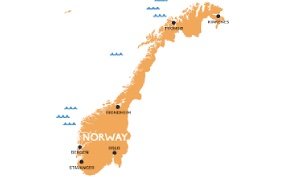Author: Roar Mikalsen
AROD: https://www.arodpolicies.org/
The human rights demonstration by the Alliance for Rights-Oriented Drug Policy (AROD) and the Patient Association for Safe Cannabis Use (PASCAN) on 20 April outside the Norwegian Director of Public Prosecutions’ office heralds a paradigm shift. For 60 years, Norway has been known for its harsh prohibition drug policy. Even so, on this day of celebration for cannabis users worldwide, there were not only appeals and good vibes, but cannabis plants, and a jar with 100 grams of dried cannabis was offered to the prosecution authority.
AROD wanted to deliver cannabis to the Director of Public Prosecutions because the Ministry of Justice has for 20 years neglected its professional responsibility; because guarantees of legal certainty have been denied drug users; and because the Director is responsible for the use of the police power.
Disproportionate power?
Since 2002, four Norwegian reports have undermined the prohibition regime. The lack of a basis for punishment is uncontested, and the failure of the political process to protect rights explains why cannabis users wanted the Director to prosecute.
Because the Norwegian drug law provides stiff penalties, 100 grams of cannabis is a key that activates the legal system. Section 89 of the Norwegian Constitution is clear that the courts have a “right and duty” to control laws, and with three civil disobedience actions, AROD has tried to get the courts to do a human rights analysis.
As more and more countries want to regulate the cannabis market to protect public health, the Norwegian authorities cannot take for granted that the prohibition fulfils a legitimate purpose. To the extent that a regulated market is better suited, the drug law will be based on the wrong premises, and several international courts find a legitimate autonomy interest in cannabis use.
Judicial review
Despite this, Norwegian courts have not provided a human rights analysis. Such an analysis weighs society’s need for protection against the individual’s right to freedom, and the relationship between ends and means is decisive. It is also crucial for the rule of law that the Norwegian courts recognize the right of judicial review. In the constitutional hierarchy, freedom rights are entitled to better protection than economic rights. These must be reviewed more precisely, and require more thorough quality control, and the Norwegian courts have previously controlled the political process when the shipowners and the real estate industry request it.
It is therefore not possible to deny those persecuted in the drug policy the right to a judicial review without the rule of law breaking down. Even so, on 20 December 2022, the Norwegian Supreme Court disregarded 200 years of legal history to protect the drug law from human rights analysis, and that is why AROD brought 100 grams of cannabis to the Director of Public Prosecutions. The prosecution was a key part of the plot to deny drug users a fair trial, and the Director has a personal responsibility to protect the constitution.
A blind spot remains
AROD will not let this go. The European Court has been asked to decide on the Norway’s refusal to provide a human rights analysis, and to understand why the law enforcement authorities did not want to prosecute 100 grams of cannabis, the ethical guidelines of the prosecution speaks volumes:
⦁ The criminal justice system, including the Director of Public Prosecutions’ task-resolution, must always withstand a critical light.
⦁ The humane aspect of the criminal justice system has an inherent value that must be maintained.
⦁ Legal certainty in the broadest sense is of crucial importance, also from a trust perspective.
⦁ There is no fundamental conflict between good law-enforcement and human rights.
The police therefore did not fail to take action because an arrest would be documented. That never prevents the long arm of the law. Instead, the police refused to intervene because the prohibition cannot be defended and because AROD has a list of questions that cannot be answered to the satisfaction of an independent, impartial, and competent tribunal.
That is why the police and the prosecution authorities did not intervene. As seen in ARODs previous civil disobedience cases, neither the Director of Public Prosecutions nor his representatives want to provide drug users with the means to challenge the law. The state does not want to confront the failures of prohibition and so 100 grams of cannabis were distributed outside the Director’s office to the delight of those present. In other words, while civil disobedience has moved the state forward it has also made obvious a problem with the rule of law, and so where does Norway go from here?
No doubt, activists will continue to push for more legal developments. AROD has shown civil disobedience to be effective at moving the state forward, and more actions are expected until the constitution is taken seriously. Only question is: Will AROD at next year’s 420-event offer even more cannabis to the Director of prosecutions, or will the Norwegian state accept responsibility for the rule of law?




